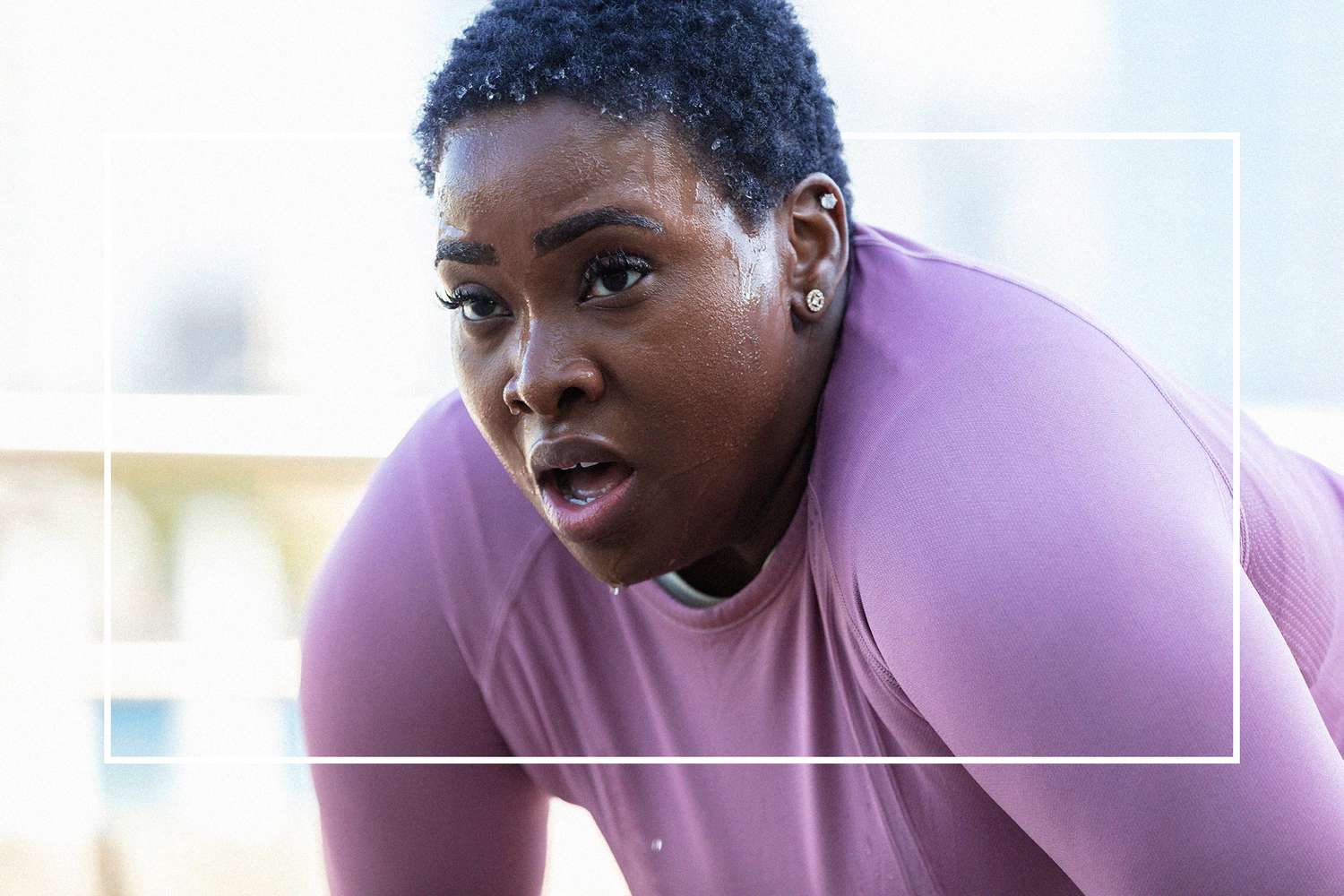
If your inner competitor fires up at the mention of a “challenge,” then there’s likely a social media fitness fad or two that has piqued your interest. But you should do your research before hopping into any program, and that includes the now-viral 75 Hard Challenge.
What is the 75 Hard Challenge, you ask? The plan consists of a set of rules created by Andy Frisella, an author, motivational speaker, and supplement company owner. (Notably missing among those titles are certified trainer, R.D., or licensed therapist.) According to the 75 Hard site, “75 Hard is the only program that can permanently change your life…from your way of thinking to the level of discipline you approach every single task in front of you with.” Frisella also notes the challenge is “not a fitness program,” but is about “mental toughness.”
The idea has intrigued plenty of people. The hashtags #75HardChallenge and #75Hard have collectively accumulated more than 1.1 billion views on TikTok.
But are participants onto something and is the "discipline" Frisella claims participants will develop even possible? Keep reading for what experts have to say about the 75 Hard Challenge.
What Are the 75 Hard Challenge Rules?
The 75 Hard Challenge consists of six rules that must be followed for — you guessed it — 75 days straight.
Did you break one of the rules? Drink only eight glasses of water a day rather than the full gallon, or skip your assigned reading? Did you decide that taking daily progress photos wasn't in line with your wellness philosophy? Tough luck — the rules require you to start again from the beginning. (Yes, even if you break a rule on Day 74.)
Is the 75 Hard Challenge Safe?
That’s a hard “no,” says Rachel Miklya, R.D., a certified personal trainer at Strength in Nutrition. The main reason? “[It’s] physically grueling and is not sustainable for the majority of people,” she says.
The Potential Physical Effects of the 75 Hard Challenge
"The key to a healthy lifestyle is sustainability, and for most people, working out for 45 minutes twice a day is not sustainable," Miklya points out. Granted, Frisella specifies on the 75 Hard Challenge site that you can choose your workouts based on your fitness level, even if that means going for two walks. But those who decide to push themselves through two grueling 45-minute workouts per day in the spirit of a challenge are setting themselves up for issues. "If individuals are doing 45 minutes of hard workouts every day throughout the challenge, it will likely lead to injury," says Miklya.
Even if you’re choosing appropriate workouts for your fitness level, working out for 75 days straight without a rest day will be overly taxing on your body, especially if you’re new to exercise, says Miklya.
The challenge may seem appealing if a participant is looking for a "quick fix," as 75 Hard promises rapid results when followed, says Miklya. "[But] this short term, quick fix program does not promote behavior change in the long run," she elaborates. "What happens after a diet? People frequently go back to their old ways leading to a reappearance of unhealthy behaviors." In the long run, participants will end up feeling burnout, since "bodies need rest to repair," says Miklya.
The Possible Mental Effects of the 75 Hard Challenge
An all-or-nothing challenge such as the 75 Hard Challenge can be “mentally draining,” says Julie Landry, Psy.D., founder of Halycon Therapy Group.
"The challenge appears to be a collection of arbitrary rules," says Landry. "To my knowledge, there is no scientific evidence supporting the combined components of the plans or in some cases even the individual components."
Landry also points out that the challenge's one-size-fits-all approach doesn't take individual needs into account. What's more, the idea that "you're either mentally tough and able to stick to the challenge or you're failing" can lead to further issues, she says.
"The challenge is supposed to improve self-worth but this could be detrimental," says Landry. "[And] it could damage the participant's relationship with food — the idea of a diet in and of itself is typically not a good idea, and a better approach is to adopt an overall healthier lifestyle that is sustainable."
The Bottom Line
If you’re still looking to shake up your fitness routine or set some health goals, the best way to go about it is to find a plan that is “truly sustainable for the long haul,” says Miklya.
"It's important to complete strength and cardiovascular training as well as incorporate rest days," she says. "Fitness should be individualized to a specific person." Generally speaking, solid weekly goals would include three days of strength training, two days of cardio, and a couple of rest days, says Miklya. "Workouts should last 30 to 60 minutes for the majority of non-competitive athletes, however, if someone only has time for a 15-minute workout, it is better than nothing."
Here's What a Perfectly Balanced Weekly Workout Schedule Looks Like
The 75 Hard Challenge has blown up on social media, and the promise of increased mental toughness certainly sounds appealing. But at the end of the day, a balanced, flexible plan is going to be more effective and sustainable in the long run than a black-and-white approach.














































